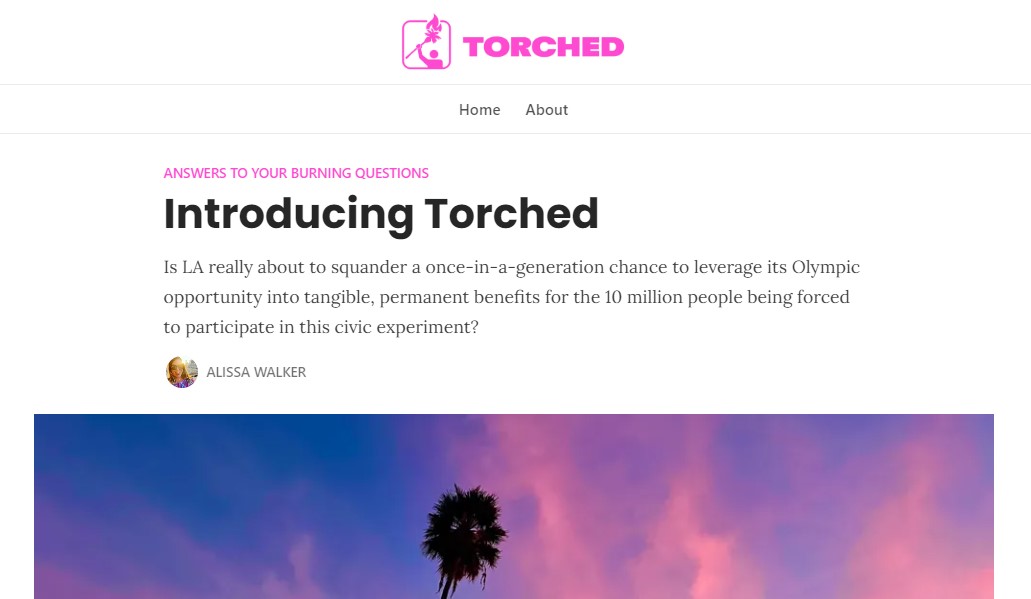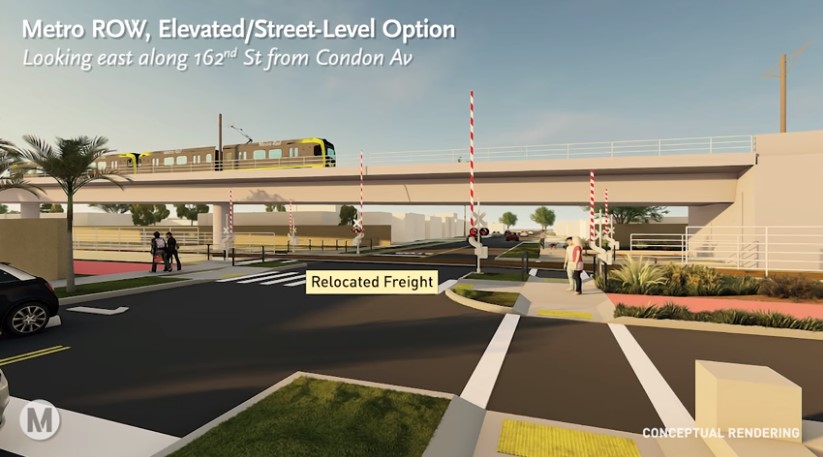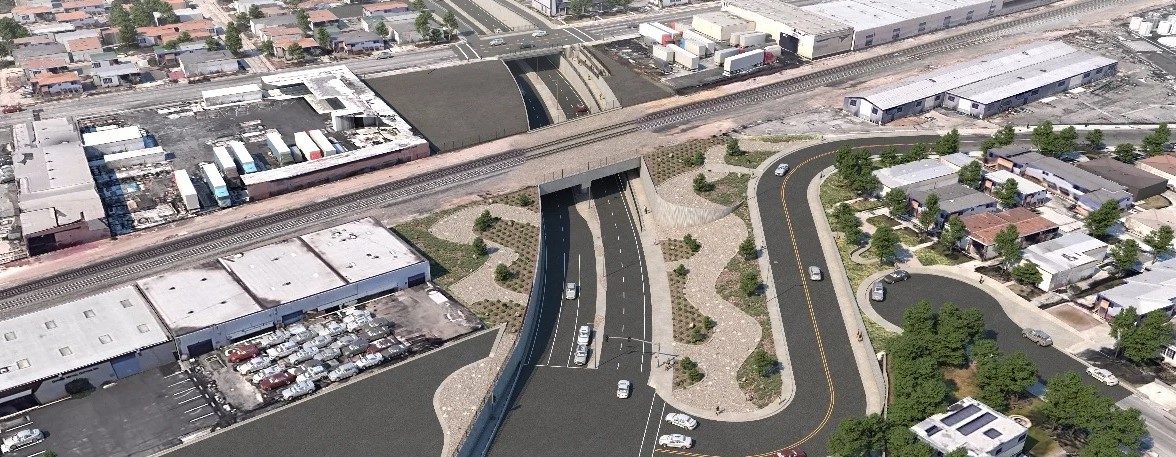Controversy Over Hollywood Farmer’s Market Raises Question: Who Owns the Street?
9:52 AM PST on January 13, 2011
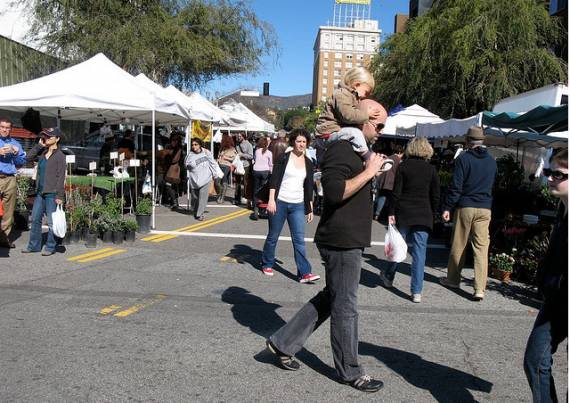
The uncertain future of the Hollywood Farmers Market has inspired much energy and advocacy that food and street advocates in Los Angeles can be proud of. Market operator See-LA rallied allies and supporters. Farmers’ market patrons flooded City Councilperson Eric Garcetti with messages of support for the market. Garcetti in turn helped extend the permit and is trying to negotiate a solution that preserves most of the markets’ existing footprint and access. But the controversy also raises a question that in turn suggests a way to save the market and others like it.
Who owns the streets?
Or, in this situation, why in the @#*^ can a single adjacent business veto the continuation of a farmers market that is one of the cornerstones of social life, healthy food access, and community supported agriculture in Los Angeles?
To be even more specific, why is the Board of Public Works giving residents and business owners adjacent to proposed farmers markets, street fairs and other special events a quasi-property right in the streets that lets them veto temporary closures of public streets?
I’m speaking of the requirement, in section VI.D. of the City’s Street Closure Provisions and Application Procedures. http://bsspermits.lacity.org/spevents/common/street_closure_codes.htm#6
A petition must be submitted indicating that occupants of at least 51 percent of the residences or businesses within the closure area have no objections to and support the closure. Petitions must be signed by the owner, manager, assistant manager, or lessee of the residences or businesses impacted by the closure.
It’s not because buying property adjacent to a public street gives you a legal right to use that street 100 percent of the time.
It’s not because such petitions are the only way to ensure that the interests of local residents are considered when the City receives an application for a special street-closing event. Section II of the Street Closure Provisions requires the Bureau of Street Services to consider the
A. Impact of the proposed closure on residents, occupants or business persons of the block.
B. Impact of the proposed closure on the accessibility of emergency vehicles into the closure areas.
C. Impact of the proposed closure on vehicular traffic such as circulation, traffic movement and availability of alternate routes for traffic.
D. Potential interference with commercial and business activities in the immediate vicinity.
E. Conditions existing within the surrounding area that, when occurring in conjunction with a street closure, might create a hardship or an unnecessary inconvenience to the general public or persons residing in the area.” So local interests are well represented in the decision making criteria.
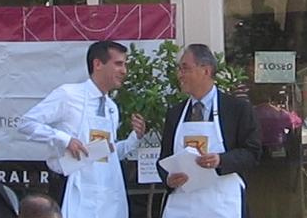
It’s not because all municipalities give property owners veto over proposed special events and street closures. In San Francisco, for example, all interested parties can come comment at a public hearing but no petitions are required. http://www.sfmta.com/cms/vclos/strclos.htm (Looking this up, I noticed that organizers of events in San Francisco with an expected attendance of 2000 + are also required to provide monitored bike parking. That sounds like a good idea for Los Angeles to implement).
It’s also not because the elected representatives of the City of Los Angeles have mandated that a majority of adjacent property owners be able to block street events. The City’s municipal code requires that
the result of petitions, required or otherwise {emphasis mine}, circulated in residential or commercial areas impacted by the event” “shall be included among all the relevant criteria used in reviewing applications for Special Event Permits.”
Los Angeles Municipal Code. Chapter IV Public Welfare. Section 41.20 d.2.K. So the City could give applicant the option to submit petitions, or require some petitions but nor disqualify applicants who fail to reach a magical 51 percent threshold.
I assume that the requirement is in place to avoid controversial events and to out-source responsibility for public outreach and discussion of proposed street closures from the agency to event organizers. It is usually a good thing for street event sponsors to go door to door talking to neighbors as a way to gain buy-in and spread the word about public events. But the threat to block the Hollywood Farmers’ Market from receiving a new permit shows that the mandatory nature of petition process can give neighbors excessive leverage when there are a small number of property owners fronting a street.
Hopefully negotiations will allow the Hollywood Farmers Market to continue in its current location.
Whatever the outcome, I’d encourage the Board of Public Works and/ or The City Council to change the 51 percent requirement to avoid any other important street events from being blocked by self-interested property owners. Here are some potential solutions.
- Eliminate mandatory petitions. Make petitions from residents/ businesses in the closure area voluntary rather than mandatory. Applicants will still be encouraged to get as many petitions as possible to demonstrate local support, but this would not be a precondition to receive a permit.
- Eliminate veto by a small number of neighbors. Eliminate mandatory required petitions from 51% or more of adjacent residents/ businesses requirement when there are ten or fewer adjacent residents/ owners in the closure area.
- Waive petition requirement for farmers markets. Eliminate the requirement to submit mandatory petitions from 51% or more of residents/ businesses in the closure area for all applications for permits for certified farmers markets.
- Expand petitions beyond the closure area to underline that the public at large ‘own the streets.’ Require petitions from 51% or more of adjacent residents/ businesses OR from at least 51 individual residents/ property owners/ organizations from anywhere who support the event/ plan to attend the event. Andres Duany’s suggestion that “You can’t confuse neighbors with the community as a whole” and that public participation for new projects should focus on a random sample of the community rather than on local residents, seems persuasive to me in the case of street events.
I’d also eliminate section II.F from the Street Closure Provisions and Application Procedures. It requires “Verification that the applicant or sponsor owns, leases or rents property on the proposed block to be closed or can obtain and submit a letter of co-sponsorship from an individual who meets those criteria.” While a easier threshold than the petitions, in a street with one property owner this too becomes a veto over proposed events.
Every year in the neighborhood I grew up in, a nearby residential street was blocked off for an annual street fair to commemorate the year their street had accidentally been left off the city map. There’s nothing wrong with a community taking pride in their streets or with a local voice in how streets are used. But this healthy localism shouldn’t be debased into a property right to vital public space. Eliminating property owners’ veto over street closings/ events would help ensure that public streets are used for the benefit of the broader public.
Stay in touch
Sign up for our free newsletter
More from Streetsblog Los Angeles
Automated Enforcement Coming Soon to a Bus Lane Near You
Metro is already installing on-bus cameras. Soon comes testing, outreach, then warning tickets. Wilshire/5th/6th and La Brea will be the first bus routes in the bus lane enforcement program.
Metro Looks to Approve Torrance C Line Extension Alignment
Selecting the relatively low-cost hybrid alternative should help the oft-delayed South Bay C Line extension move a step closer to reality


